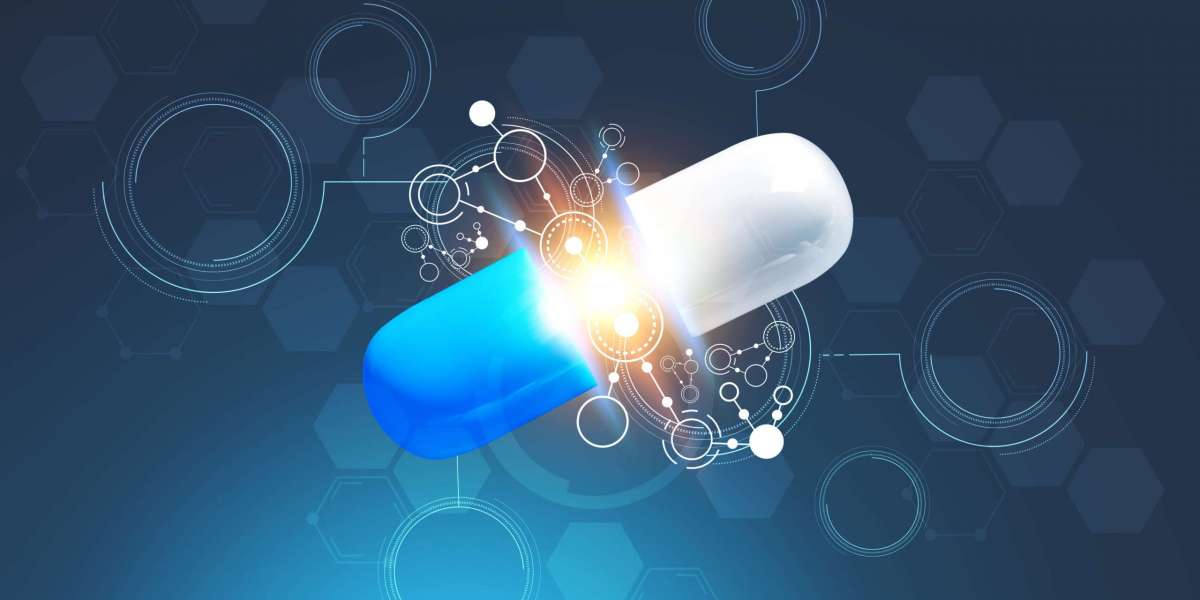In recent years, biosimilars have emerged as a transformative force in the pharmaceutical industry, offering cost-effective alternatives to biologic drugs. Unlike conventional generics, biosimilars are highly similar to their reference biologics but are not identical due to the complexity of their molecular structure. This blog aims to dissect the dynamics of the biosimilars market, covering its current landscape, major players, market drivers, challenges, and future outlook.
What are Biosimilars?
Biosimilars are biological products that are highly similar to already approved biologics, known as reference products. They undergo rigorous comparative testing to demonstrate similarity in terms of quality, safety, and efficacy. Unlike small-molecule generics, biosimilars are produced from living organisms and are more complex, requiring sophisticated manufacturing processes and extensive clinical trials for approval.
Market Overview
Current Market Landscape
The biosimilars market reached USD 24.5 billion in 2023 and is projected to grow at a compound annual growth rate (CAGR) of 17.60%, aiming to surpass USD 105.1 billion by 2032. This growth is driven by the increasing demand for affordable treatment options amidst rising healthcare costs and the expiration of patents for many blockbuster biologics.
Market Segmentation and Regional Analysis
The market is segmented based on product type, including monoclonal antibodies, insulin, and erythropoietin, among others. Geographically, North America holds the largest market share, followed closely by Europe and Asia-Pacific. The Asia-Pacific region is poised for significant growth, driven by expanding healthcare infrastructure and increasing patient populations.
Market Drivers
- Cost-effectiveness: Biosimilars offer substantial cost savings compared to biologics, making them attractive to healthcare providers and payers aiming to contain costs without compromising patient care.
- Disease Prevalence: The rising prevalence of chronic diseases such as cancer, diabetes, and autoimmune disorders fuels the demand for accessible and affordable treatment options, driving the adoption of biosimilars.
- Regulatory Support: Favorable regulatory frameworks, including expedited pathways for biosimilar approvals by regulatory bodies like the FDA (Food and Drug Administration) and EMA (European Medicines Agency), facilitate market entry and competition.
Market Challenges
- Complex Manufacturing: Manufacturing biosimilars involves intricate processes, including cell culture, purification, and formulation, which can be technically challenging and costly.
- Regulatory Hurdles: Stringent regulatory requirements, including demonstrating biosimilarity and safety profiles through clinical trials, pose barriers to market entry and competition.
- Safety Concerns: Ensuring patient safety and maintaining confidence in biosimilar products, especially in terms of immunogenicity and long-term efficacy, remains a critical challenge.
Key Players in the Biosimilars Market
Pfizer Inc.
Pfizer is a leading pharmaceutical company with a robust portfolio of biosimilars, including biosimilars to blockbuster biologics such as Humira. The company leverages its global presence and extensive research capabilities to expand treatment access and affordability worldwide.
Celltrion Inc.
Celltrion is renowned for its pioneering work in antibody biosimilars and has established a strong global footprint. With a focus on innovation and quality, Celltrion invests significantly in research and development to meet growing market demand and regulatory standards.
Novartis AG
Through its subsidiary Sandoz, Novartis plays a pivotal role in the biosimilars market by offering a diverse portfolio of biosimilar products. Novartis leverages its expertise in biotechnology and global market reach to enhance patient access to affordable biologic treatments.
Amgen Inc.
Amgen is a biotechnology giant known for its innovative biosimilars targeting critical therapeutic areas. By combining cutting-edge research with strategic partnerships, Amgen aims to improve healthcare outcomes and address unmet medical needs through biosimilar innovation.
Teva Pharmaceutical Industries Ltd.
Teva is a global leader in generics and biosimilars, with a broad portfolio spanning multiple therapeutic areas. With a strong presence in over 60 markets worldwide, Teva focuses on expanding patient access to high-quality, affordable biosimilar treatments.
Samsung Bioepis
Samsung Bioepis specializes in developing biosimilars across diverse therapeutic areas, including oncology, immunology, and ophthalmology. By leveraging its biotechnology expertise and strategic collaborations, Samsung Bioepis drives innovation in biologic therapeutics delivery.
Biocon Ltd.
Biocon is a pioneer in biosimilars, particularly in diabetes and oncology treatments. With a global presence and a commitment to affordability and innovation, Biocon continues to expand its biosimilars portfolio and enhance patient care worldwide.
Market Dynamics
Impact of COVID-19
The COVID-19 pandemic highlighted the resilience and importance of biosimilars in healthcare systems worldwide. While some regions accelerated biosimilar adoption to manage healthcare costs, others faced delays in approvals and market access due to regulatory disruptions and supply chain challenges.
Regulatory Landscape
Ongoing regulatory developments, such as biosimilar guidelines and expedited approval pathways, significantly influence market dynamics and market entry strategies. Regulatory harmonization efforts aim to streamline approvals and enhance global market access for biosimilars.
Pricing Strategies
Competitive pricing strategies are crucial for biosimilars to gain market acceptance and compete with originator biologics. Price transparency initiatives and value-based pricing models contribute to healthcare cost containment strategies while ensuring patient access to affordable biologic treatments.
Technological Advancements
Advancements in biosimilar manufacturing technologies, such as continuous processing and cell line development, enhance production efficiency, reduce costs, and improve product quality. These technological innovations drive competitiveness and scalability in the biosimilars market.
Future Outlook
Emerging Markets
Emerging markets, particularly in Latin America and Asia-Pacific, present significant growth opportunities for biosimilars. Increasing healthcare investments, expanding middle-class populations, and rising disease burdens drive market expansion and adoption of biosimilar therapies.
Innovations in Development
Future trends in biosimilars include the development of biobetters and next-generation biosimilars with improved efficacy, safety, and patient outcomes. Innovation hubs and collaborative research efforts focus on advancing biologic therapeutics delivery and addressing unmet medical needs.
Market Consolidation
Market consolidation trends, including strategic alliances, mergers, and acquisitions among pharmaceutical companies, reshape the competitive landscape of the biosimilars market. Collaborations enhance research capabilities, market reach, and portfolio diversification to meet evolving healthcare demands.
Patient Access Initiatives
Initiatives to improve patient access to biosimilars through education, advocacy, and policy reforms are critical for market expansion. Stakeholder collaboration, including healthcare providers, payers, and patient advocacy groups, fosters awareness and acceptance of biosimilar therapies worldwide.








